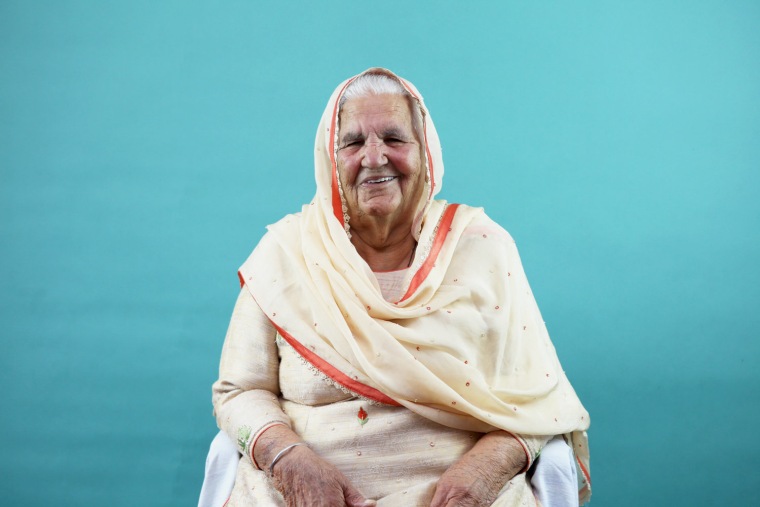When Jessie Kaur Lehail and Saji Kaur Sahota met for the first time at a speaking event in early 2015, the two Sikh Canadian women bonded over feminism, identity politics, and their mutual realization that many women in Sikhism stood in the shadows of their fathers or husbands.
“Women make up 48 percent of the community and yet our voices are never heard,” Lehail told NBC News. “There is very minimal conversation about how women have contributed to Sikh history. We’re in the background for Sikh religious events.”
To address the issue, the Vancouver-based pair launched the Kaur Project in April 2015. The website is inspired by the Humans of New York project and highlights the lives, struggles, and achievements of Sikh women in North America.
Founded in the 16th century in Punjab, India, Sikhism is a monotheist religion with a large focus on social justice, including gender equality. Sikh women take on the name Kaur as their middle or last name as a way to challenge the patriarchal notion of women adopting their husband’s names, according to Lehail. But over time, with cultural constraints overriding religious scripture, the feminist elements of the religion have eroded, Lehail said.
“But this is not what the founder of the religion, Guru Nanak, intended,” she said.
Women who take part in the Kaur Project sit for portraits by Sahota, who is a photographer, and do an interview with Lehail, who has a background in public relations and communications.
“The first question I ask each woman when we sit down for our interview and photography session is, What’s your story?” Sahota said.
Lehail says it’s an opportunity for the women to become visible and to tell stories they don’t often share.
“No one asks them how they see themselves as Kaurs or about their journeys as Sikh women,” she said.
The women discuss how Sikhism has helped them navigate their lives from their careers, families, mental health, and body image, among other subjects. Lehail and Sahota said they also extract the woman's struggles, as well.
“I was baptized when I was younger and I used to wear a turban. But I never realized I was different until I was bullied by other kids.”
“So many of the women have shared their stories with abuse, their relationship with the religion and spirituality,” Sahota said.
Trust is an integral part of the community of women the Kaur Project is building. Lehail and Sahota said they are very deliberate about how they conduct the interviews and what kind of information they reveal.
“When they share painful things and private things we have to make sure that they’re comfortable with what we’re sharing,” Lehail said. “It should empower their lives not endanger themselves at any point, so we don’t include information about their families, jobs or spouses.”
The Kaur Project is meant to be a form of therapy for the women that are profiled, according to Lehail and Sahota. The pair understands the need for a space like that due to their own early experiences with racism and misogyny.
“I never realized I was different until I was bullied by other kids,” Lehail said. “When I was eight years old, my cousin and I were walking to temple across the street from our house and we were chased by Caucasian girls who wanted to light our hair on fire.”
Lehail said that the Kaur Project showcases the multi-layered identities of being a Kaur women.
“The otherness is what we’re addressing, she said. “We no longer feel like we’re just South Asian or Sikh. We can harness all these identities and vividly showcase our identities. If we wait for the status quo to make that happen, it never will.”
Follow NBC Asian America on Facebook, Twitter, Instagram and Tumblr.
An earlier version of this story misattributed a quote to Jessie Kaur Lehail.
